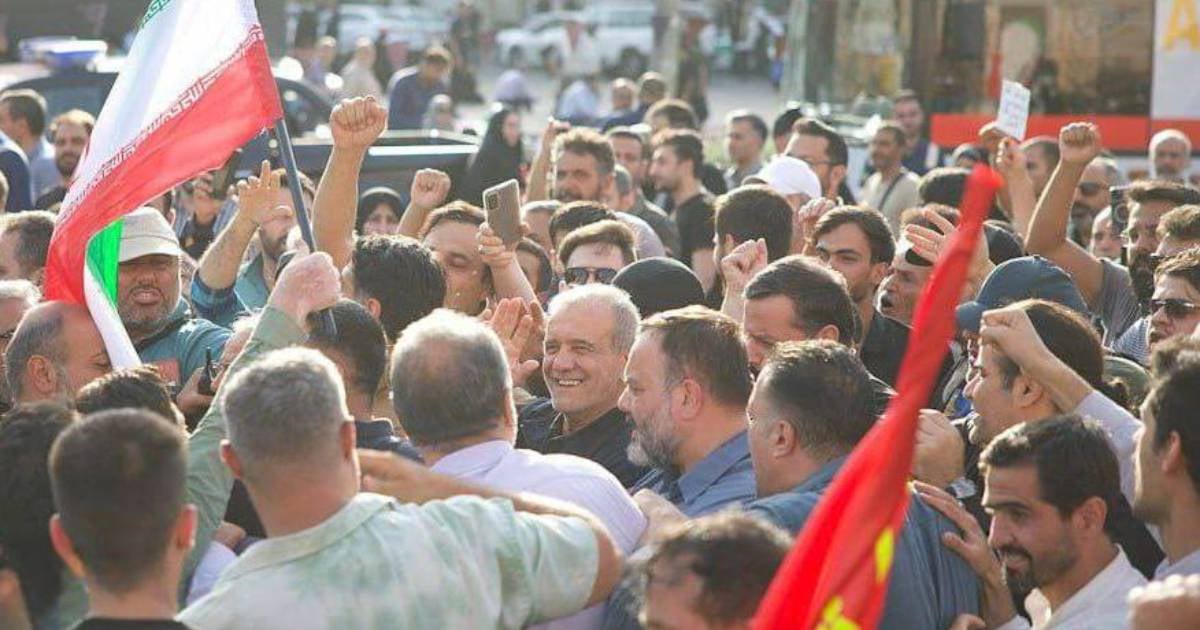On Tuesday, Iranian President Masoud Pezeshkian announced the conclusion of a "war imposed" by Israel, celebrating what he described as a "historic victory" for Iran after 12 days of intense conflict that gripped the world's attention. In a televised address on state-run IRIB, Pezeshkian declared that Iran stood valiantly against attacks from the "Zionist regime," and asserted that the ceasefire, facilitated by U.S. President Donald Trump, marked a defeat for Israel.
"We are witnessing a ceasefire and the end of the 12-day war that was forced upon the Iranian people through the reckless aggression and warmongering of the Zionist regime," stated the Persian leader.
The conflict erupted in the early hours of June 13 when Israeli forces launched airstrikes on Iranian nuclear facilities. The assault escalated with attacks across various regions of Iran, including the capital. In retaliation, Iran unleashed a barrage of missiles and drones targeting key sites in northern and central Israel, raising fears of a broader regional escalation.
A Ceasefire Marked by Defiance
The ceasefire came into effect early Tuesday following Trump's proposal for a 12-hour truce, accepted by both nations. However, Iran swiftly turned the cessation of hostilities into a political victory declaration. Pezeshkian asserted that Israel "suffered a severe and historic punishment" and that its attacks failed to demolish nuclear facilities, hinder scientific progress, or incite social chaos.
"The aggressive enemy repeatedly failed in its sinister objectives to destroy nuclear facilities, weaken nuclear development, and incite social unrest," emphasized the president.
According to American and Israeli media reports, Trump himself urged Israeli Prime Minister Benjamin Netanyahu to abort an impending attack. Initially resistant, Netanyahu agreed to scale back the offensive. "Israel will not attack Iran. All planes will turn around and head home, giving a friendly salute to Iran," Trump posted on his social media platform, Truth Social.
Nevertheless, tensions lingered. Israel accused Iran of breaching the ceasefire by launching a missile, a claim Tehran denied. In retaliation, Israel reportedly destroyed a radar installation near Tehran, as confirmed by local and international media.
Amid the fragile cessation of hostilities, Iran announced on Tuesday its readiness to resume its nuclear program without interruption, including uranium enrichment operations. "Our program will not stop," warned the Atomic Energy Organization of Iran, signaling that the truce does not equate to surrender.
Key Developments in the Iran-Israel Conflict Resolution
What triggered the 12-day conflict between Iran and Israel?
The conflict began with Israeli airstrikes on Iranian nuclear facilities on June 13, leading to a series of retaliatory attacks from Iran.
How was the ceasefire between Iran and Israel achieved?
The ceasefire was facilitated by U.S. President Donald Trump, who proposed a 12-hour truce that both nations agreed to honor.
Did the ceasefire completely halt hostilities between Iran and Israel?
While the ceasefire was agreed upon, tensions persisted with accusations of violations, including a missile launch by Iran, which Tehran denied.
